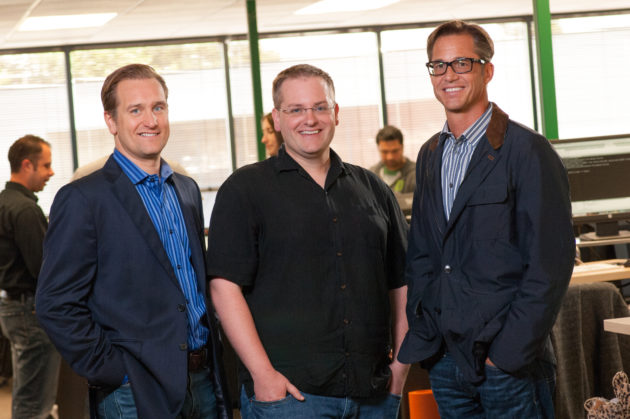Glassdoor: The Story Behind the Biggest Online Review Portal for Job Seekers
Years ago, people were practicing the traditional approach to finding jobs, i.e., through the newspaper classified section, local ads, brokers, or a reference from a friend or relative. But as the internet evolved with time, people started using online job portals, which became the most convenient method for all sorts of job seekers. Today millions of users, both employers and job seekers, can easily connect through such portals. In the same league, when one is looking for a job and gets an offer, they now can look for the company reviews on similar review-based websites, and easily make their mind on taking or not taking the offer. One such leading review-based online portal is Glassdoor.
Glassdoor is a review-based website that lets its users anonymously submit their reviews about a company, their experience, satisfaction with the company, salary, other workplace-related data, etc. This information is publicly available to job seekers, who want to know about the work environment of a certain company. The website also includes the feature to post or search for a job.
The Founders of Glassdoor
The co-founders of Glassdoor include Tim Besse, Robert Hohman, and Rich Barton. Both Robert Hohman and Rich Barton were working for Microsoft. Barton founded Expedia (a Microsoft spun-off company) in 1996, where Hohman was one of the team members. Later, after the spin-off, Barton became the chairman and Hohman the CEO of Expedia.

Image Source: geekwire.com
On the other hand, Tim Besse met his future partners Hohman and Barton at Expedia only. He joined the company as his first job immediately after graduating from the Case Western Reserve University. Besse worked as the director of the Product Management and Online Marketing for the Asia Pacific division at Expedia.
The Story Behind
Rich Barton had been in the online business industry from before and had co-founded companies like Expedia and Zillow. He had a mind that would ask questions and try to answer them, even if he had to opt for an unconventional path. Going off track, with Expedia, he was providing airline ticket prices to the public and, with Zillow, he was revealing the exact real estate prices for the people. With Glassdoor too, he took an unconventional step.
During a brainstorming session for a new business idea in 2007, Barton and Hohman remembered an incident when Barton had left some employee survey data on the printer. This survey had information about employee satisfaction, their salaries, and reviews of their workplace. Though Barton’s assistant had grabbed that file safely, the two discussed the bad and the good aspects of that information going public. It was the trigger point for their new business idea. The two thought that even if that data had got revealed, it would have not caused any harm to anyone. In fact, if there was such a public platform, where people could submit such reviews of their companies, it would have been helpful for the job seekers to make better career choices.
The Working of Glassdoor
Tim Besse was impressed by the idea and left Expedia to join Hohman and Barton for their new business. Finally, in June 2008, with an investment of around $10 million, they founded Glassdoor. The concept behind the platform was the anonymous rating of companies by the people who have worked with them. People now had a platform, where they could put their reviews on their experience with a company, how much they got paid, and how satisfied they were while working in it. Glassdoor also enabled the users to post any company-related media on the platform, to make their reviews more authentic.
The Platform uses smart technology and a team of people to filter the original reviews from original people so that the reviews are always trustworthy. With time, the platform started posting their rating for the companies, by averaging the reviews, salaries of employees, rating for the management, culture, etc. Later, based on the rating, Glassdoor started offering the ‘Best Places to Work Awards’ to the top listed companies.
The Journey of the Company in the Past Decade
In 2010, the company added a new feature to the website, i.e. Enhanced Employer Profiles. This new feature allows the users to add content other than reviews on the website. This feature is paid and offers the users to add content like social media links, interview questions, classified, etc. to their account. This paid content became useful for the people who wanted to prepare for a certain company interview. Glassdoor also provided features to submit a job opening for companies.
From 2012 to 2015, the company had raised around $160 million through venture capital. By 2015, Glassdoor had registered over 20 million users, and in the following two years, there were 41 million unique users at the platform. Glassdoor became a unicorn company within ten years of its founding. More than one-third of the biggest companies in the world have partnered with Glassdoor as its corporate clients. It has become the most trustworthy platform for job seekers. Glassdoor has been a winner of the Red Herring North America Award for Social Media Innovation 2013.
In June 2018, Recruit Holdings acquired Glassdoor for $1.2 billion in cash. Currently, Christian Sutherland-Wong is working as the CEO of Glassdoor.

Yashica is a Software Engineer turned Content Writer, who loves to write on social causes and expertise in writing technical stuff. She loves to watch movies and explore new places. She believes that you need to live once before you die. So experimenting with her life and career choices, she is trying to live her life to the fullest.


